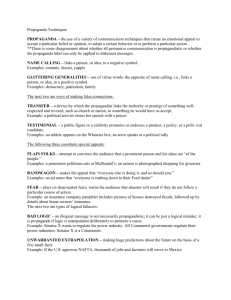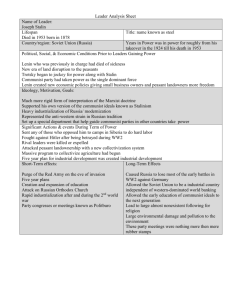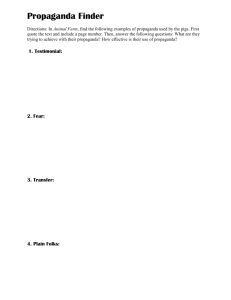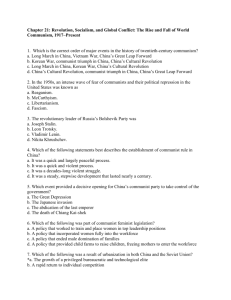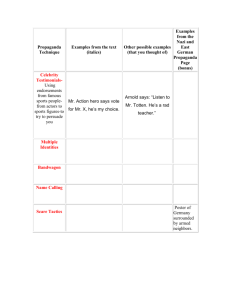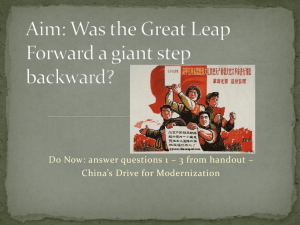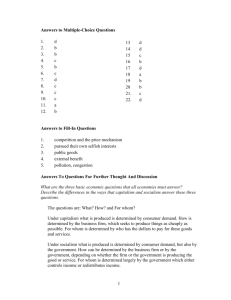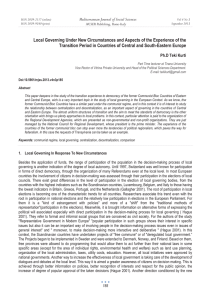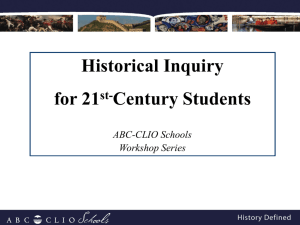The Cold War: The Rivalry that Nearly Ended Earth
advertisement
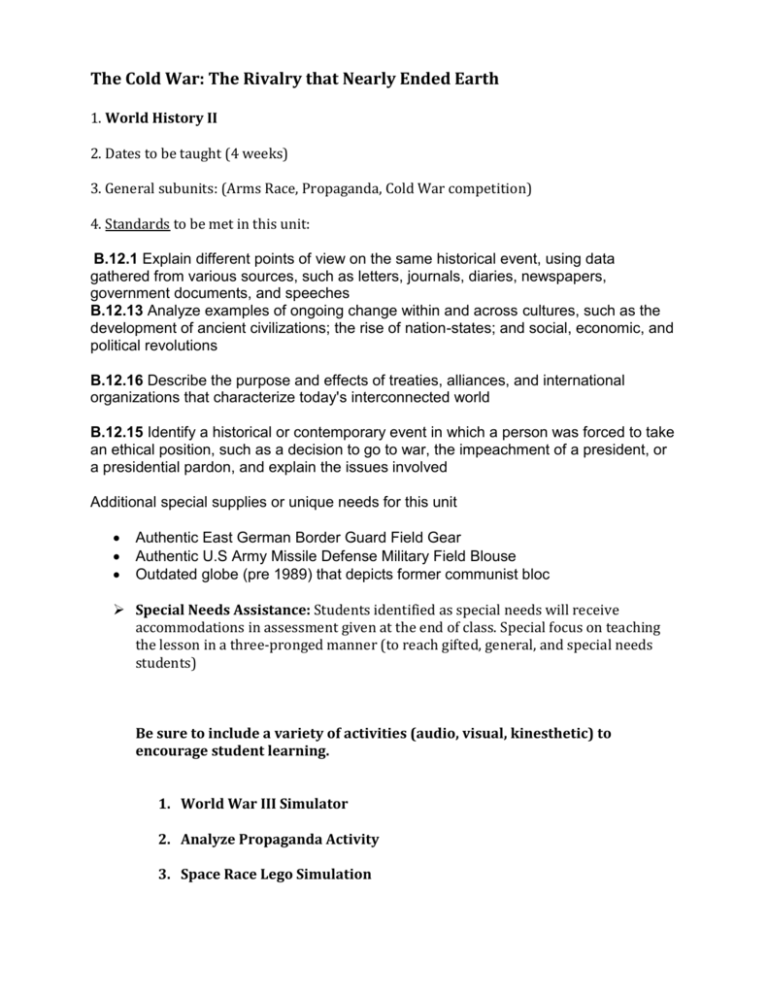
The Cold War: The Rivalry that Nearly Ended Earth 1. World History II 2. Dates to be taught (4 weeks) 3. General subunits: (Arms Race, Propaganda, Cold War competition) 4. Standards to be met in this unit: B.12.1 Explain different points of view on the same historical event, using data gathered from various sources, such as letters, journals, diaries, newspapers, government documents, and speeches B.12.13 Analyze examples of ongoing change within and across cultures, such as the development of ancient civilizations; the rise of nation-states; and social, economic, and political revolutions B.12.16 Describe the purpose and effects of treaties, alliances, and international organizations that characterize today's interconnected world B.12.15 Identify a historical or contemporary event in which a person was forced to take an ethical position, such as a decision to go to war, the impeachment of a president, or a presidential pardon, and explain the issues involved Additional special supplies or unique needs for this unit Authentic East German Border Guard Field Gear Authentic U.S Army Missile Defense Military Field Blouse Outdated globe (pre 1989) that depicts former communist bloc Special Needs Assistance: Students identified as special needs will receive accommodations in assessment given at the end of class. Special focus on teaching the lesson in a three-pronged manner (to reach gifted, general, and special needs students) Be sure to include a variety of activities (audio, visual, kinesthetic) to encourage student learning. 1. World War III Simulator 2. Analyze Propaganda Activity 3. Space Race Lego Simulation Unit Plan Course: World History II Teacher: Mr. Heinze Unit Title: The Cold War: The Rivalry that Nearly Ended Earth Dates: October 4-October 29 2012: Tuesday/Thursday class periods Objectives: 1. Students will identify the intense political, military, cultural, intellectual, rivalry between the United States and the Soviet Union. Students will recognize how the two superpower’s mutual desire to become the world’s dominant superpower affected the thinking and attitudes of leaders on both sides. 2. Students will comprehend the concepts of the differences between democratic and communist ways of life, global nuclear arms race, satellite nations, and propaganda and correlate their knowledge to identify the violence and risk of nuclear destruction, and political upheaval that were direct consequences of the Cold War. 3. Students will analyze the rise and fall of the Communist bloc and indentify the reasons behind the revolutions that brought about its rise and its capitulation from 1918 to 1990. 4. Students will identify the effects of the Cold War that continue to effect the present day and will critically analyze the great changes that the end of the Cold War brought to the modern world. Vocabulary: Arms race, puppet state, ICBM, NIKE silo, military industrial complex, democracy, communism, socialism, Space Race, Sputnik, Communist bloc, Berlin Wall, Cuban missile crises, Vietnam War, covert operations Student resources: World History: Patters of Interaction: Class textbook Alas, Babylon, Pat Frank, J.B Lippincott Publishing Cold War Era Civil Defense Films: -Atomic Alert (Elementary Version) 1951 - What is Communism 1955 -Duck and Cover 1951 Rise and Fall of the Berlin Wall: History Channel Media Assessments: The Cold War: Introductory Pre-Assessment The Cold War: Response Assignment The Cold War :Mid-Unit Quiz The Cold War: End of Unit Cumulative Exam Strategies (using Gardner’s Multiple Intelligences, Tate’s Brain-Based Strategies, & Bloom’s Taxonomy) Varied Texts by Reading Levels Kinesthetic: Movement, Socratic Method Roleplay, Simulation, Demonstration Independent Learning Investigation/Real-World Problem Vintage Media from Cold War Period Gadgets Linguistic: Writing, Reading,, Student-Led Discussion Game Homework Options Lecture Technology: PowerPoint, , Google Earth, Podcast, etc. KCASE Activities Analyze: Title, Tone, Theme, Diction, Imagery, Summary, Shifts, Conflict Synthesize Evaluate Evaluation Oral Response Test/Quiz Composition Performance/Presentation Anchor Activities for Enrichment & Remediation: Silent Reading Activity Group “Popcorn” Reading Activity Class Discussion Pyramid Style Instructor Delivery ( classroom data based differentiation) (Begin with basic content and advance to more challenging to include learners of all levels) Group Activities Analytical overviews of opinionated/biased content
